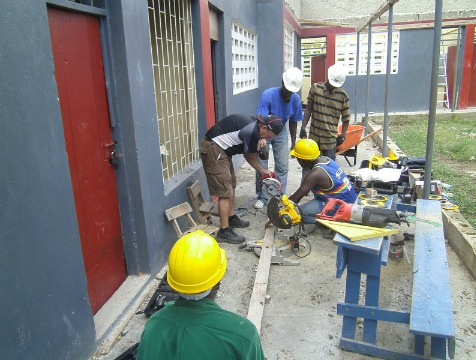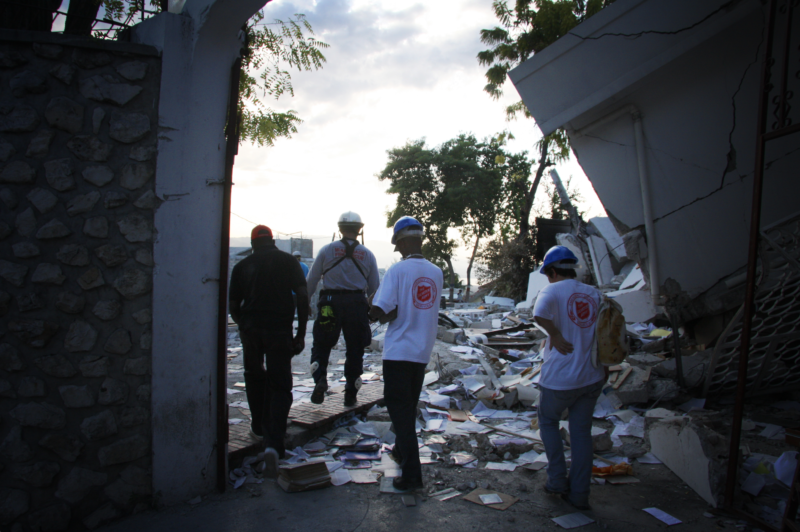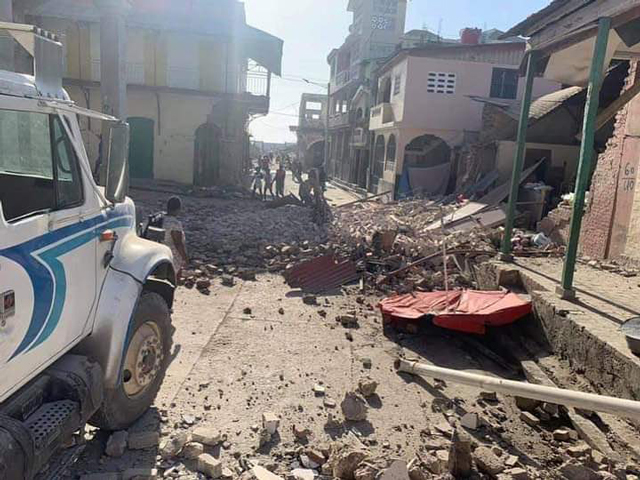Haiti 2012: The Path to Recovery

January 12 marks the second anniversary of a major earthquake that inflicted catastrophe on one of the poorest countries in the Western Hemisphere.
While Haiti continues its long road to recovery, The Salvation Army in Canada and Bermuda remains committed to empowering earthquake-affected communities. Outlined below are snapshots of our progress and plans for the future.
Cholera response and prevention:
Nine months after the earthquake the cholera epidemic struck an already devastated Haiti. With difficult access to drinkable water, the lack of proper sanitation and increased population in IDP (internally displaced persons) camps, cholera spread quickly and took thousands of lives.
Today The Salvation Army continues to fight the spread of this preventable infection. Thousands of items such as soap, liquid bleach, dry bleach, water filters and oral rehydration serum have been distributed in schools, clinics orphanages and homes.
New, improved latrines and drinkable water are being incorporated into all new and renovated schools, with the goal of reaching all schools by 2013.
Primary heath-care centre and service support program
While The Salvation Army has operated a health facility in the Delmas 2 area of Port au Prince for the last 40 years, the earthquake damaged the building beyond repair. Construction for a new, expanded facility is expected to begin January 2012.
Many Haitians use the health-care facility as their primary source of medical care because it is affordable, reliable and offers professional services. Due to the large IDP camp now established adjacent to the property, a greater number of patients are seen at the clinic. The new centre will have additional staff, accommodate 175 consultations daily, and integrate with other Salvation Army support systems within the community.
Integrated family support program
This project, set to start in January 2012, will address permanent housing, vocational training, agriculture and livelihood support. Priority will be given to those communities and families directly affected by the earthquake. Over five years:
• 260 families will receive permanent housing,
• 1,000 beneficiaries will receive vocational training that will enable them to enter the workforce and become productive members of society,
• 1,000 beneficiaries will be linked with the employment market for self-employment and/or increased family income and
• 1,500 individuals will receive agriculture training, business skills and start-up support.
• 1,500 individuals will be provided business planning and livelihood training.
About The Salvation Army in Haiti
The Salvation Army has worked in Haiti since 1950 and continues to have a huge impact on the lives of some of the world’s poorest people. Now, more than ever, the people of Haiti are counting on us.
Click here for more information on The Salvation Army’s recovery and relief efforts.





